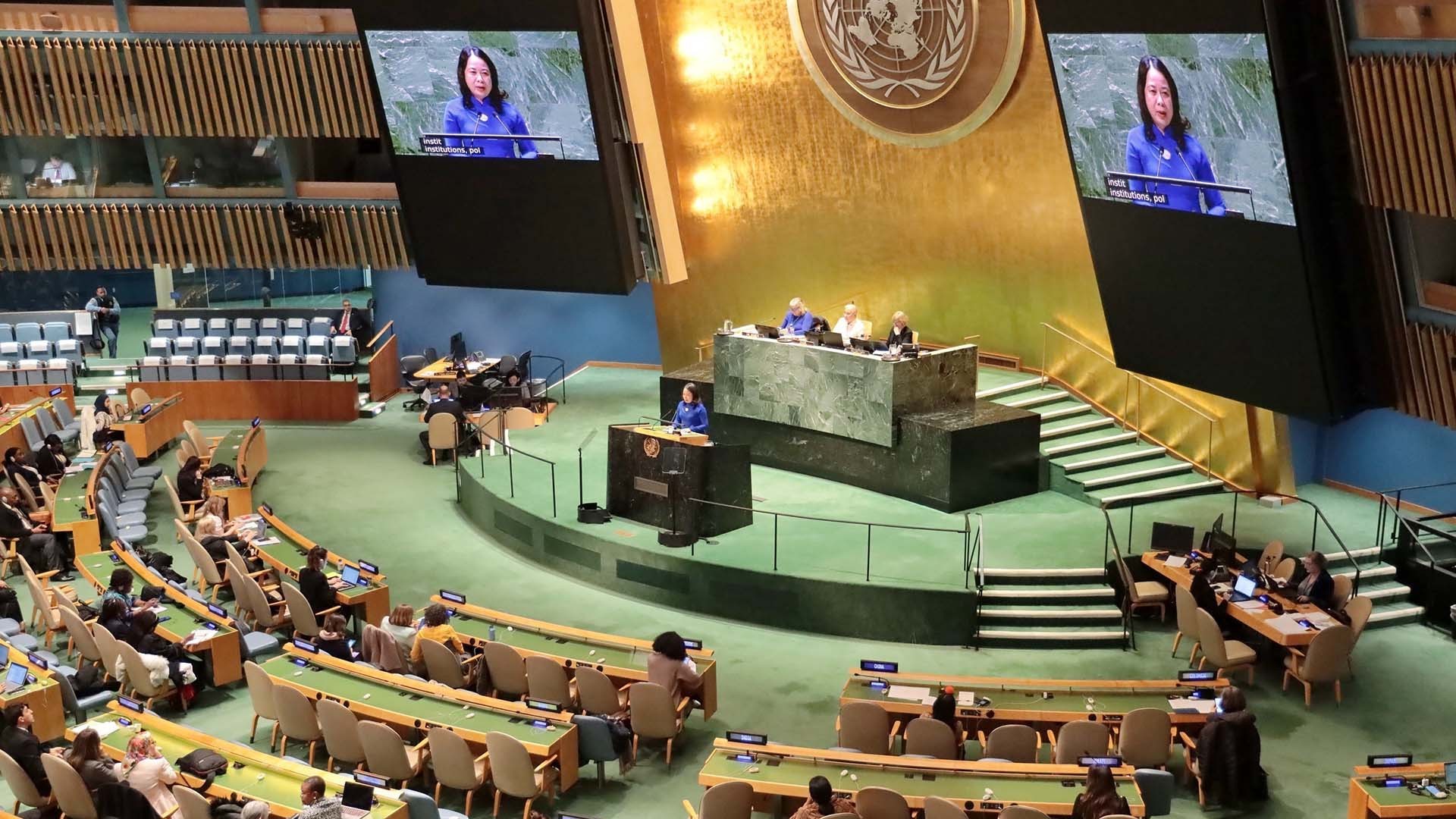 |
| Vice President Vo Thi Anh Xuan leads the Vietnamese delegation to attend the ECOSOC CSW68. (Source: VNA) |
The 68th session of the Commission on the Status of Women (CSW68) this year has special significance as it prepares to mark 30 years of implementing the Beijing Agenda for Action, promoting the implementation of the SDGs, especially SDG 5 on achieving gender equality by 2030. Vice President Vo Thi Anh Xuan led the Vietnamese delegation to attend the session.
French thinker Charles Fourier in the early 19th century said that “women’s liberation is a measure of the level of social liberation”. President Ho Chi Minh once said: “Talking about women is talking about half of society. If we do not liberate women, we will not liberate half of humanity”. In the 21st century, during the turbulent years of the international situation, that mission still has many concerns but will certainly not be forgotten in the face of the steadfast determination of the international community, including Vietnam.
The pain at the multilateral "brain"
The photo in the overview article about the Opening Ceremony of the CSW68 Conference on the United Nations' main website is not a scene of the Conference or any valuable detail throughout the event, but a close-up image of a Ghanaian woman (one of the beneficiaries of UNICEF's Livelihood Empowerment and Poverty Reduction Program) with her face, eyes and smile shining with hope...
Clearly, the hope of women around the world for a world of equality, peace and happiness is even stronger in the context that, “in conflict zones around the world, women and girls are suffering the most from conflicts that are fueled by men,” as Secretary-General Antonio Guterres said at the Conference. The anxiety about a world full of risks, creating deep holes that bury the future of millions of people is always in the mind of the UN leader, he expressed it in many important meetings in recent times. The rights of women and girls – the main victims of those instabilities and conflicts, have therefore become a concern at the multilateral “brain”.
The UN Secretary-General highlighted the “horrific” situation in the Gaza Strip, where more than two-thirds of those killed and injured in Israeli attacks are believed to be women and girls. Progress on the SDGs is lagging, especially on hunger eradication and poverty reduction, with one in 10 women living in extreme poverty. Women and girls in many parts of the world are not fully guaranteed their rights due to many backward customs, male-dominated ideology, gender stereotypes and prejudices.
In that context, “uniting in the fight for gender equality” is just a cliché slogan if it is not accompanied by specific solutions. UN leaders and high-level delegates have spent a lot of time giving specific directions for this increasingly urgent and heated “borderless struggle”.
Specifically, UN leaders emphasized the need to ensure financial resources and strengthen institutions to fully implement the 1995 Beijing Declaration and Platform for Action and the 2030 Agenda for Sustainable Development, increase women's economic empowerment, increase investment in education, end conflicts, strengthen peace, and comply with international human rights and humanitarian law.
UN General Assembly President Dennis Francis called for supporting and promoting the role of women in responding to climate change. Meanwhile, President of the Commission on the Status of Women Antonio Manuel Revilla Lagdameo said that it is necessary to focus on improving and enhancing the effectiveness of the social protection system, ensuring access to public services and building sustainable infrastructure for gender equity and empowerment of women and girls. In addition, the UN Secretary-General also emphasized the need to break the “glass ceiling” - a metaphor for an invisible barrier that hinders women's advancement - to ensure gender equality in leadership roles.
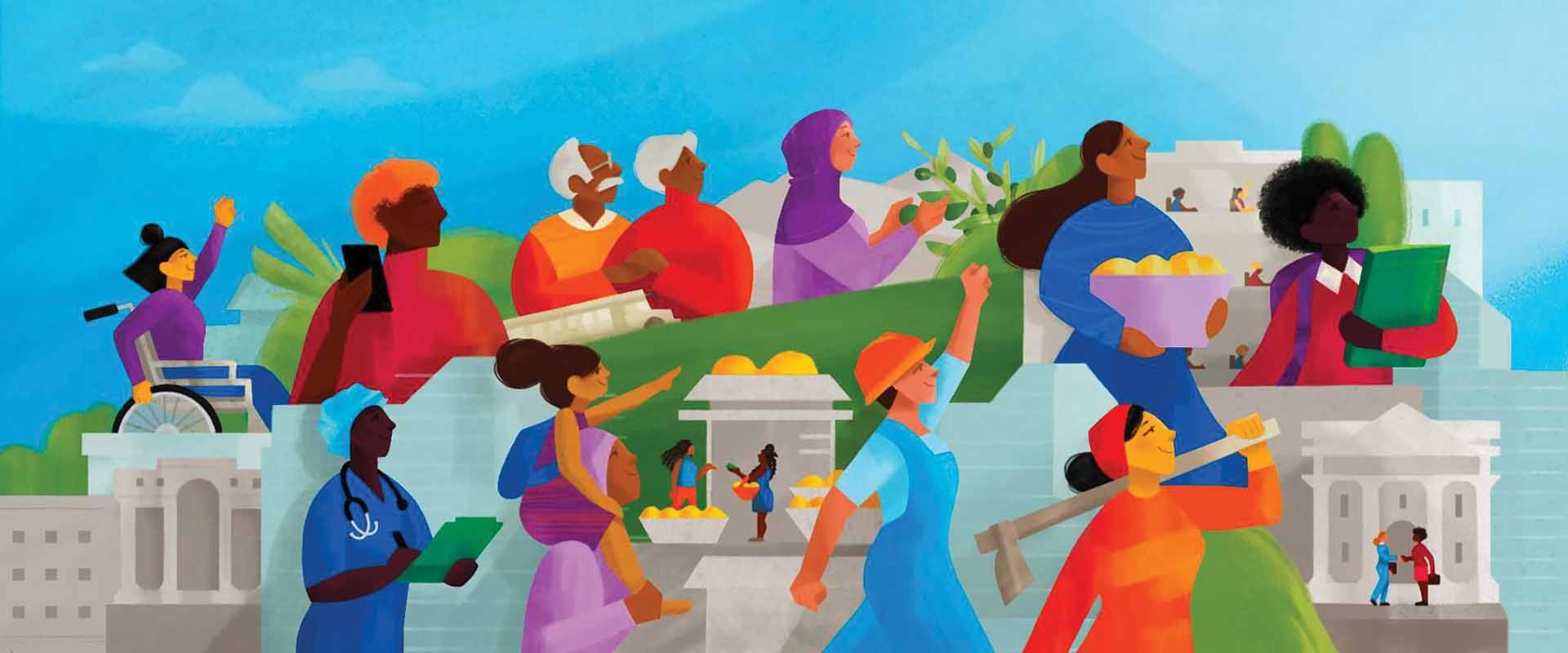 |
| Poster of the 68th Session of the Commission on the Status of Women. (Source: www.unwomen.org) |
Women rise
As one of the female leaders attending and speaking at the session, Vice President Vo Thi Anh Xuan emphasized: Women today are an indispensable force in all processes at all levels of peace, security, social progress and sustainable development.
Therefore, the female Vice President of Vietnam emphasized the phrase "women rising up", rising up with internal strength as well as external support to fully develop their abilities and participate in all aspects of life.
Also in the spirit of concretizing solutions to promote gender equality, the Vice President shared four proposals with the international community. The first is to promote women's participation in political, economic, cultural and social decision-making mechanisms, especially policies to support women in hunger eradication, poverty reduction, livelihood security, entrepreneurship and innovation. Prioritize resources to support women and girls in places where humanitarian crises occur. The second is to enhance empowerment and create access opportunities for women and girls in science, technology, digital transformation, linked to preventing and combating discrimination and violence in cyberspace.
Third is to enhance the role of women in building a peaceful, stable, inclusive and sustainable international environment, and addressing non-traditional security challenges, especially in responding to climate change. Fourth is to promote partnerships for sustainable development; increase financial support and advice on institutional and policy building for developing countries; share, disseminate and effectively promote good models to enhance the role of women in the economic, social and sustainable development fields.
Informing international friends that in January 2024, Vietnam issued the National Action Program on Women, Peace and Security, making a practical contribution to international efforts to promote this issue in the region and the world, the Vice President affirmed that Vietnam is always ready to cooperate closely with countries and partners for gender equality and empowerment of women and girls, leaving no one behind.
| Currently in Vietnam, the percentage of female National Assembly deputies is 30.3%, the percentage of provinces with key female leaders is 82.4%, the percentage of women of working age participating in the labor market is 70%, and nearly 30% of businesses have female leaders. |
Practical contributions, steadfast commitment
It can be affirmed that gender equality and ensuring women's rights are always issues that Vietnam attaches importance to and actively participates in and contributes to, not only at the national, regional and global levels. Vietnam was one of the first countries in the world to sign the Convention on the Elimination of Discrimination against Women (CEDAW) on July 29, 1980 and ratify it on November 27, 1981; at the same time, it fully implements its obligation to regularly report to the Convention Committee.
According to Ambassador Dang Hoang Giang, Head of the Vietnamese Mission to the United Nations, in recent times, at UN forums, Vietnam has actively participated in discussions, shared experiences, and contributed with other countries to building cooperation frameworks and global common standards on promoting gender equality. Vietnam is also a member of the Group of Friends on Gender Balance to promote women's participation in work positions at the UN, especially leadership positions.
Throughout that process, Vietnam has made practical and meaningful contributions to promoting gender equality at the global level. As for the UN Women, Peace and Security Agenda, during its term as a member of the UN Security Council in 2008-2009, Vietnam chaired the Open Debate on the Women, Peace and Security agenda, introducing and advocating for the adoption of Resolution 1889 (October 2009) - the first resolution of the UNSC focusing on meeting the needs of women and girls in the post-conflict period. Connecting with the achieved results, during its second term as a member of the UN Security Council (2020-2021), Vietnam and the UN successfully organized the Global Conference to promote action on global commitments on women, peace and security (December 2020), adopting the Hanoi Declaration with the participation of a large number of UN member countries.
Vietnam has also proactively increased its participation in peacekeeping activities, deploying many female soldiers and police officers to work in UN peacekeeping missions, with the rate of women participating in peacekeeping activities at 16% (the general rate of countries is about 10%); at the same time, striving to increase this rate to 20% by 2025.
The confidence of the Vietnamese Vice President on the marble podium is Vietnam's confidence in its strong determination and commitment at the high level to ensuring gender equality and women's rights. As a country that has experienced many painful wars, Vietnam understands and cherishes the value of peace, and women's happiness is an important part of a sustainable peace.
Source


![[Photo] Readers line up to visit the photo exhibition and receive a special publication commemorating the 135th birthday of President Ho Chi Minh at Nhan Dan Newspaper](https://vphoto.vietnam.vn/thumb/1200x675/vietnam/resource/IMAGE/2025/5/17/85b3197fc6bd43e6a9ee4db15101005b)
![[Photo] Prime Minister Pham Minh Chinh chairs meeting on science and technology development](https://vphoto.vietnam.vn/thumb/1200x675/vietnam/resource/IMAGE/2025/5/17/ae80dd74c384439789b12013c738a045)


![[Photo] More than 17,000 candidates participate in the 2025 SPT Competency Assessment Test of Hanoi National University of Education](https://vphoto.vietnam.vn/thumb/1200x675/vietnam/resource/IMAGE/2025/5/17/e538d9a1636c407cbb211b314e6303fd)

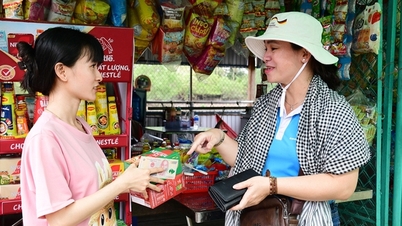

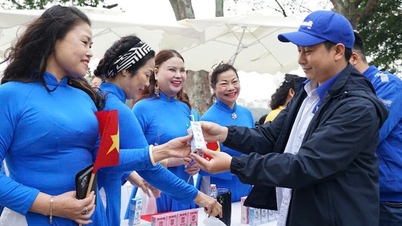




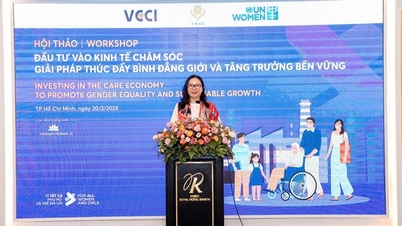
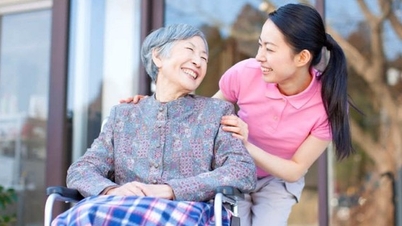


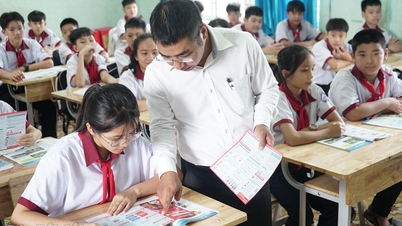








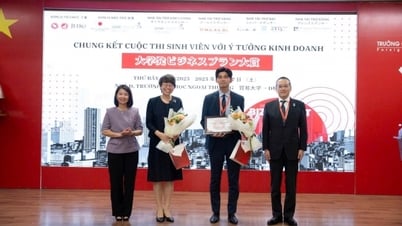
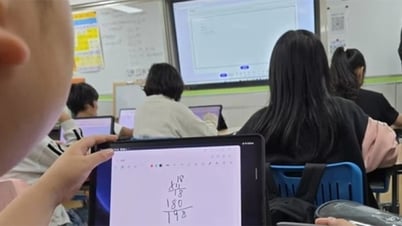
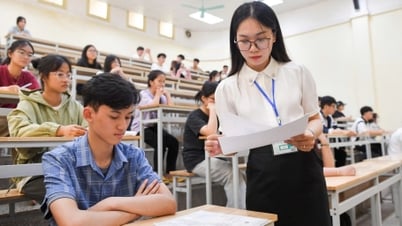
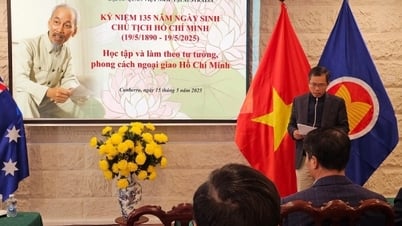
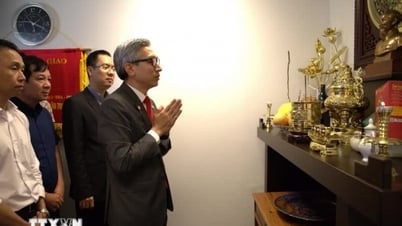
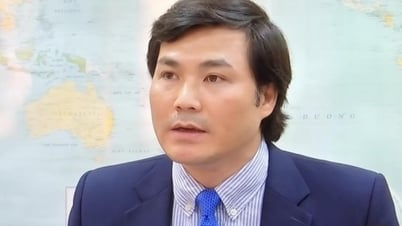
![[Photo] Nearly 3,000 students moved by stories about soldiers](https://vphoto.vietnam.vn/thumb/1200x675/vietnam/resource/IMAGE/2025/5/17/21da57c8241e42438b423eaa37215e0e)

















































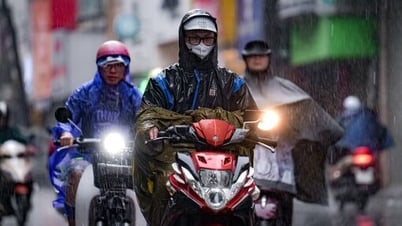

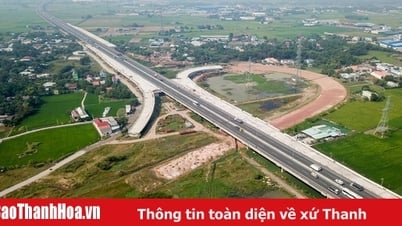

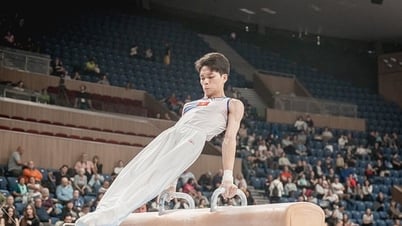



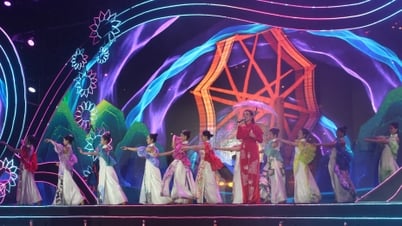











Comment (0)